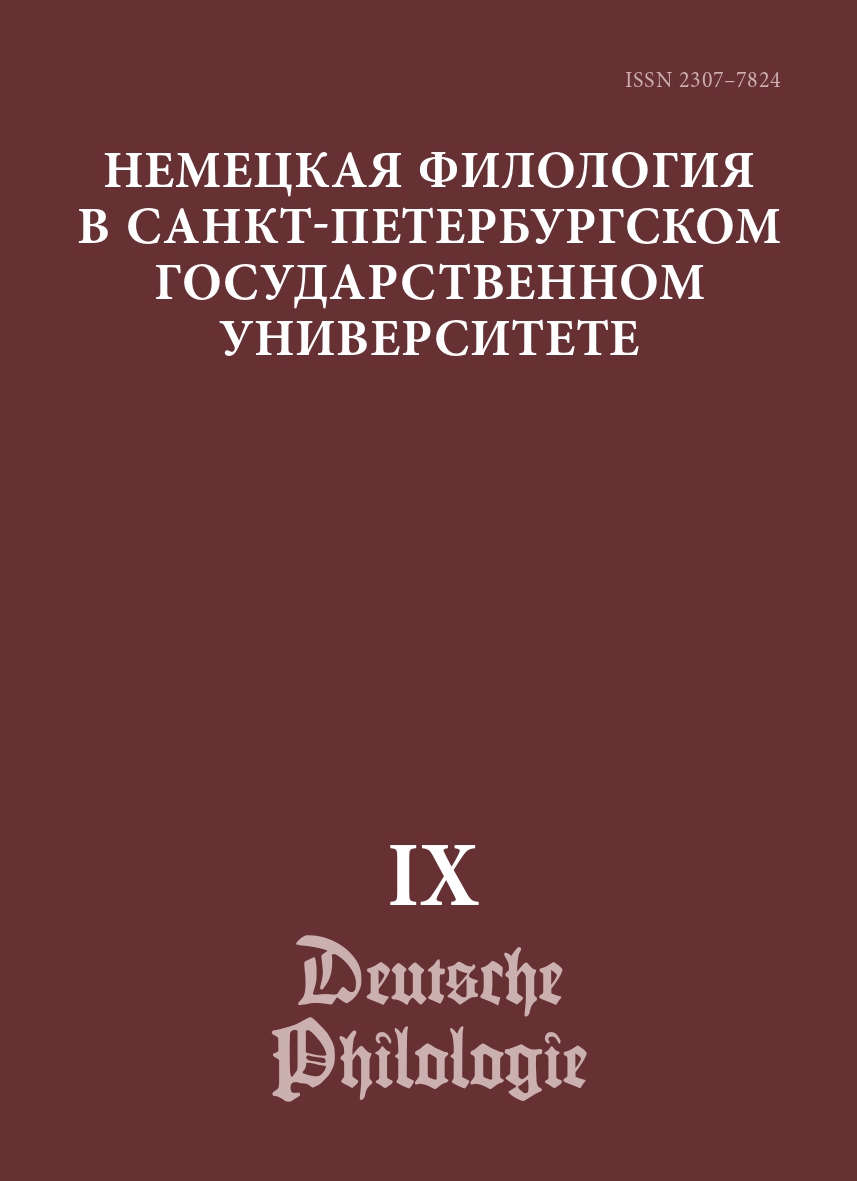SOME ASPECTS OF INTERTEXTUALITY IN GERMAN AND RUSSIAN LITERARY DISCOURSES
Abstract
Currently, intertextuality is one of the most attractive directions in the linguistic analysis of speech products. The study of intertextual and interdiscourse connections allows us to expand our understanding of semantic relationships between individual texts, to identify and analyze complex structural and typological relations between a text and a class (group, type) of texts sharing similar linguistic and extra-linguistic characteristics. The problem of structuring typological interrelations between separate types of texts and separate discourses stands apart. Intertextuality as a phenomenon accompanies a person throughout the history of culture embodied in the texts, and affects almost all areas of communication. Thus, it acts as an integral feature of literary communication, characteristic for different periods of development of languages and cultures. Direct and hidden references from one text to another, integration of a source text fragment into another text (or a text fragment), conversion of one holistic text into another holistic text, etc. allow to overcome the idio-ethnic framework of language systems, preserve and enhance the cultural heritage of literary predecessors. Often, intertextuality goes beyond the purely linguistic framework of this concept, as a result of which a speech product, being manifested in different media spaces, acquires new properties. The possibility of presenting literary texts in different traditional and new media inevitably entails the need to take into account the relevant intermedia characteristics. The examples given in the article are taken from literary sources, starting from the 16th century up to the present, which allows us to trace some trends in the development of intertextuality in different periods of language and culture.
Keywords:
discourse, text, literary dialog, interdiscursivity, intertextuality, German language, Russian language
Downloads
Downloads
Published
How to Cite
Issue
Section
License
Условия передачи авторских прав на статьи и рецензии, опубликованные в ежегодном периодическом издании «Немецкая филология» регулируются условиями Лицензионного Договора автора с Санкт-Петербургским государственным университетом. В соответствии с Лицензионным Договором опубликованные материалы находятся в открытом доступе, а авторам бесплатно предоставляется неограниченные возможности их распространения и самостоятельного архивирования.




